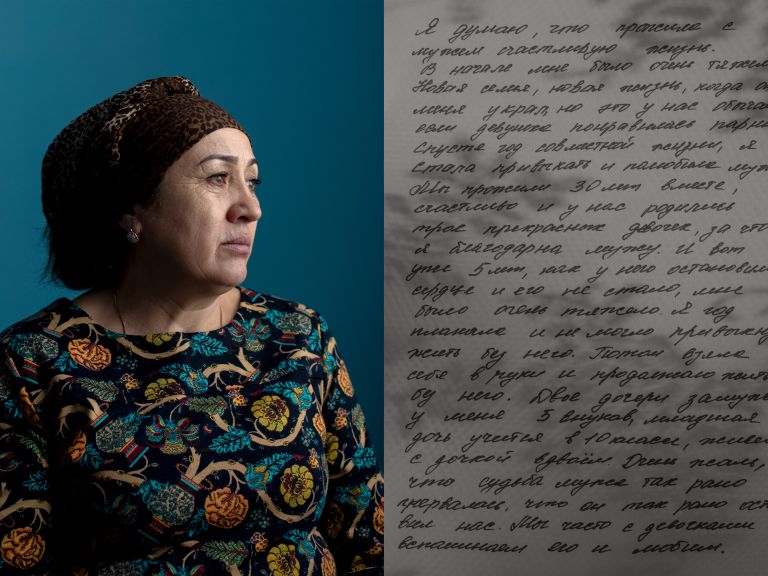Project Detail: I am Jamilia
Contest:
Reportage and Documentary 2019
Brand:
LuganoPhotoDays
Author:
Irina Unruh
Status:
Finalist
Project Info
I am Jamilia
“He liked me, the man who kidnapped me, but I DID NOT like him. I could not imagine me with him, couldn’t imagine at all. And I blame my cousin, she wanted me to get married. I could not imagine my life there and with him. And here is the result. After (the kidnapping) I took some pills, I felt in a coma, and I became an invalid (chronically emotional distress). I want to ask him - How is your life going? My life is broken… I am lonely… Sick... “ writes a 37-year-old woman from Kyrgyzstan who became a victim of the practice “Ala Kachuu” more than a decade ago. And this practice is still ongoing. “Alu Kachuu” (in Kyrgyz “to take and run away”) means bride kidnapping. It appears particularly in rural parts of the country.
“He liked me, the man who kidnapped me, but I DID NOT like him. I could not imagine me with him, couldn’t imagine at all. And I blame my cousin, she wanted me to get married. I could not imagine my life there and with him.
And here is the result. After (the kidnapping) I took some pills, I felt in a coma, and I became an invalid (chronically emotional distress).
I want to ask him - How is your life going? My life is broken…
I am lonely… Sick... “
writes a 37-year-old woman from Kyrgyzstan who became a victim of the practice “Ala Kachuu” more than a decade ago. And this practice is still ongoing. “Alu Kachuu” (in Kyrgyz “to take and run away”) means bride kidnapping. It appears particularly in rural parts of the country although Kyrgyzstan outlawed it in 2013. Nowadays 13,8 percent of women aged under 24 married through some forms of coercion according to the latest available data in Kyrgyzstan. `I am Jamilia - Kyrgyzstan in transition` tries to approach this substantial cultural issue of bride kidnapping in Kyrgyzstan. This body of work focuses until now mainly on women of different ages and from different parts of Kyrgyzstan. Each woman has her own story. But all of them have one in common: they all have been kidnapped to get married. Some victims describe the brutality of this practice. And all interviewed women remember precisely every single detail of the day when they were abducted. Often a group of young men grab a young woman or even a high school student in broad daylight, packing her violently into a car and driving away no matter if she is in panic, struggling, screaming and weeping. Once abducted, the young woman is taken immediately to the family of the would-be groom and subjected to psychological pressure by his female relatives. In too many cases, the groom will rape his kidnapped bride to prevent her from returning to her family due to shame. Many parents of Ala Kachuu victims overwhelmingly accept the act as a fait accompli and sometimes even push their daughters into the marriages to save face. Bride kidnapping is a custom with deep roots, it raised and got a massive problem after the collapse of the Soviet Union.
But there is an increasing reflection also on the psychological implications of those affected. Especially women who suffered lifelong under their traumatic experience being kidnapped want a different start into a marriage for their own children, both for their daughters and for their sons.
This work shall not only give voice to those women who became victims of bride kidnapping furthermore; it shall include an emphasis on the glimmer of hope for a change in Kyrgyzstan. Despite the stories of tragedy, all these women continued life after being kidnapped. Nonetheless, all of them did not lose hope that bride kidnapping will one day belong to the past of Kyrgyzstan.















